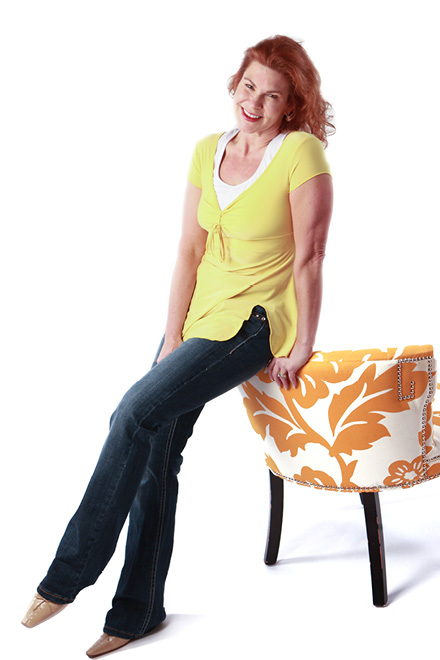My journey to being a dietitian who specializes in emotional eating
Caught sneaking ice cream
Around seven years old my mom caught me sneaking ice cream from the freezer. She didn’t get mad, instead, she asked me what I was doing.
I was embarrassed. Even though she explained that I didn’t need to sneak food, I could just ask, I still felt shame.
Like many kids, I felt out of place and wanted a friend. Food helped me cope by soothing and distracting.
What I didn’t realize until years later was I thought food was my friend, I used it to make myself feel better.
I used to think emotional eating was bad

As a teen, I felt overwhelmed with emotions and did not know what do to with them. Shoot, most of us as adults don’t know the best way to handle our emotions. Training to be a dietitian does not provide much information on mental health either.
So I had a lot to learn. Spending a great deal of time attending professional development conferences, workshops, and supervision provided a lot of insight professionally, as well as personally.
Through my journey, I made personal connections to my own food struggle that continued, even after becoming a dietitian.
Why I love the work I do and what I am doing
One of my first positions was to work at a mental health facility. The facility had many programs working with all ages on issues such as anxiety, depression, trauma, substance and alcohol abuse.
I knew how nutrition impacted physical and medical conditions. I quickly realized that nutrition also impacted a person’s mental health.
Dual sessions with therapists, psychiatrists, and psychologists gave me the opportunity to view connections from the mental health perspective. This experience helped me to see how connected food choices are to a person’s childhood and life experiences.
Emotional connection to food
Seventeen years of working with clients impacted with struggles to the point of needing inpatient mental health care provided me the opportunity to REALLY understand the emotions and challenges.
The understanding that even though I had lots of great education about nutrition and wellness, a deeper psychological level of understanding made for better long-term outcomes.

My master’s program work focusing on eating disorders, along with supervision and experience working at an eating disorder center, provided insight to develop an eating disorder program. Not only a program for clients but also training to help clinicians understand the bridge between the physiology and psychology of foods impact on the body and mind.
These experiences developed my passion for working with eating disorders and the post-bariatric population.
Bariatric Surgery Specialty experience
I’ve seen the journey clients, friends, and professionals have experienced post-bariatric surgery. The path is a long, twisty path of joy, struggles, and discoveries about this life-altering experience.
As a dietetic intern, I counseled patients who had just had the surgery, literally, hours before. I even had the honor of being in the operating room for a laparoscopic Roux-en-Y when they first were being done.
Sadly, I have lost close personal friends to the complications of bariatric surgery.
While working at a mental health facility, I continued to see the post-surgery struggles such as nutrient deficiencies, alcohol and substance use, eating disorders, and gastrointestinal distress.
My passion stems from my desire to help end the out-of-control feeling around food, decrease the nutrient deficiencies, and maladaptive behaviors that sometimes surface post-surgery.
There's another way and it's not about willpower
Help understanding emotional eating and moving forward
Blending the medical aspect with the mental side is one reason I am so unique.
I focused my masters’ work on exploring the impact of nutrition education training on medical students, along with the emotional aspects of eating. This started my love of helping professionals draw the connection.
Sharing these connections with physicians and allied health professionals provides me joy.
Physicians want to help their patients to get healthy but don’t have the time to give more than simple recommendations that do not get to the complex intermingled challenges. They know a quick fix won’t bring lasting results. Getting to the root of the struggles is the lasting plan.
I enjoy training professionals on the food and mood connection. By showing how to dissect the physical and emotional food relationship, professionals feel more confident in helping their patients.
Your Texas RD- passionate about emotional eating struggles
When finding the right provider, you want a person who does not give up. Someone who will push through to find a solution.
I have done things in my own life others said could not be done. I learned to fly a plane and became a pilot, swam over 1200 laps at our neighborhood pool (to raise money for a good cause), and was the youngest to hold the record.
Now I realize emotional eating is a clue to what I may be experiencing internally. Over time, with lots of great mentors, training, and soul work, I learned the keys to decoding food hang-ups.
I love to bring permission to my clients to eat their favorite foods. There is great joy in seeing others become free to eat all foods and especially ice cream and chocolate!
If you want to talk to me more about finding a realistic plan, click here and let’s talk.
